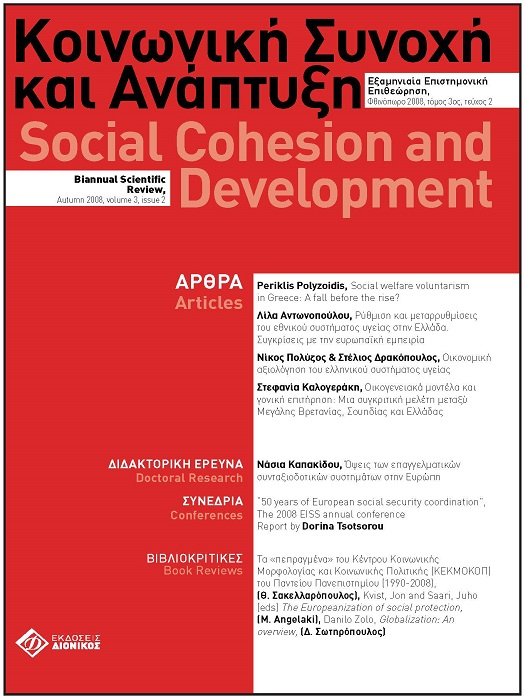Regulation and reforms of the Greek National Health System: comparisons with the European experience

Abstract
The Greek National Health System (ESY) has
undergone many attempts for reform. The
fi rst one is traced back during the fi rst years
after its foundation in 1983 and the last one
is dated during 2005. Following a description
of the characteristics and the development
of the ESY, this study reviews the tendencies
of its reforms interpreting them according to
criteria which stem from the Greek experience
of economic and social development. The
comparison of the ESY’s development with
the potential outcomes of the national health
systems of other European countries, due
to recent reforms, is approached from the
perspective that these reforms have the
tendency to transfer the weight of fi nancing,
especially in the case of the public hospital,
away from the national budget upon private
family budgets.
Article Details
- How to Cite
-
Αντωνοπούλου Λ. (2016). Regulation and reforms of the Greek National Health System: comparisons with the European experience. Social Cohesion and Development, 3(2), 109–120. https://doi.org/10.12681/scad.8890
- Issue
- Vol. 3 No. 2 (2008)
- Section
- Articles

This work is licensed under a Creative Commons Attribution-NonCommercial-ShareAlike 4.0 International License.
Authors who publish with this journal agree to the following terms:
- Authors retain copyright and grant the journal right of first publication with the work simultaneously licensed under a Creative Commons Attribution Non-Commercial License that allows others to share the work with an acknowledgement of the work's authorship and initial publication in this journal.
- Authors are able to enter into separate, additional contractual arrangements for the non-exclusive distribution of the journal's published version of the work (e.g. post it to an institutional repository or publish it in a book), with an acknowledgement of its initial publication in this journal.
- Authors are permitted and encouraged to post their work online (preferably in institutional repositories or on their website) prior to and during the submission process, as it can lead to productive exchanges, as well as earlier and greater citation of published work (See The Effect of Open Access).


